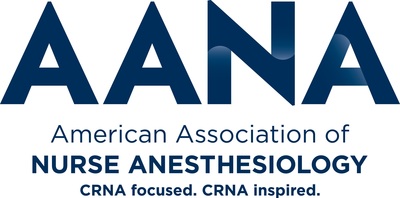|
18.08.2021 23:28:00
|
AANA Study Reveals that Removing Practice Barriers Increases Patient Care Access
PARK RIDGE, Ill., Aug. 18, 2021 /PRNewswire/ -- The American Association of Nurse Anesthesiology (AANA) released a new study demonstrating that the removal of barriers to practice and the expansion of responsibilities of nurse anesthetists enabled them to provide much-needed care to patients with COVID-19.
Acknowledging the important role of CRNAs during the pandemic, the Centers for Medicare & Medicaid Services (CMS) temporarily suspended the physician supervision requirement for CRNAs to increase the capacity of the healthcare delivery services. Governors also removed many barriers to CRNA practice, granting state healthcare systems better flexibility during this crisis. Due to such regulatory changes, CRNAs expanded their practice beyond the operating room, providing expertise in triage, airway and ventilator management, and arterial and central line placement.
In the study, "Impact of COVID-19 Pandemic on Certified Registered Nurse Anesthetist Practice," data showed CRNAs were more likely to experience an expansion in practice in states that removed practice barriers through executive order.
"Nearly one out of every six (16%) of CRNAs surveyed engaged in new forms of patient care activities performed outside the operating room or unsupervised," according to Lorraine M. Jordan, PhD, CRNA, CAE, FAAN, Chief Executive Officer of the AANA Foundation and the AANA Chief Advocacy Officer.
"For CRNAs in states with the most restrictive regulations before the pandemic, the odds of practice expansion increased by 83%. Our findings demonstrate that removal of barriers to practice and the expansion of CRNA responsibilities to their full scope of practice contributed to enhanced care of COVID-19 patients in much-needed areas," said Jordan.
According to a January 2021 CMS report, CRNAs were among the top 20 specialties that served the most Medicare and Medicaid insured individuals in non-telehealth care between March 2020 and June 2020—the height of the COVID-19 public health emergency. However, respondents of the current survey also reported missed opportunities to utilize the full expertise of CRNAs due to continued state and institutional restrictions in some places.
CRNAs noted that despite the fact their states had executive orders in place to expand the scope of practice, they were prohibited from maximum utilization of their skills and knowledge because of restrictions at individual healthcare facilities.
Earlier this year, the AANA Foundation conducted a qualitative study to assess the impact of temporary waivers on CRNA practice and patient care, which documented the profound effect of CRNAs being leaders to care for COVID-19 patients during the pandemic. That study showed that the majority of CRNAs found themselves front and center of the crisis educating, developing protocols, acting as consultants and intensivists, manning incident command centers, and innovatively solving problems.
Details of the survey are available in the August edition of the AANA Journal, the association's official scholarly journal.
Authors of the study are Vicki Callan, PhD, CRNA, CHSE; Ladan Eshkevari, PhD, CRNA, LAc, FAAN; Stephen Finder, DNP, CRNA; Leslie Jeter, DNP, MSNA, CRNA; Stephanie May, DNAP, MSNA, CRNA; Lori Schirle, PhD, CRNA; Jill Stulce, PhD, CRNA; Ruby L., Hoyem, PhD; Marjorie Everson, PhD, CRNA, FNAP.
![]() View original content to download multimedia:https://www.prnewswire.com/news-releases/aana-study-reveals-that-removing-practice-barriers-increases-patient-care-access-301358433.html
View original content to download multimedia:https://www.prnewswire.com/news-releases/aana-study-reveals-that-removing-practice-barriers-increases-patient-care-access-301358433.html
SOURCE American Association of Nurse Anesthesiology
 Der finanzen.at Ratgeber für Aktien!
Der finanzen.at Ratgeber für Aktien!
Wenn Sie mehr über das Thema Aktien erfahren wollen, finden Sie in unserem Ratgeber viele interessante Artikel dazu!
Jetzt informieren!
